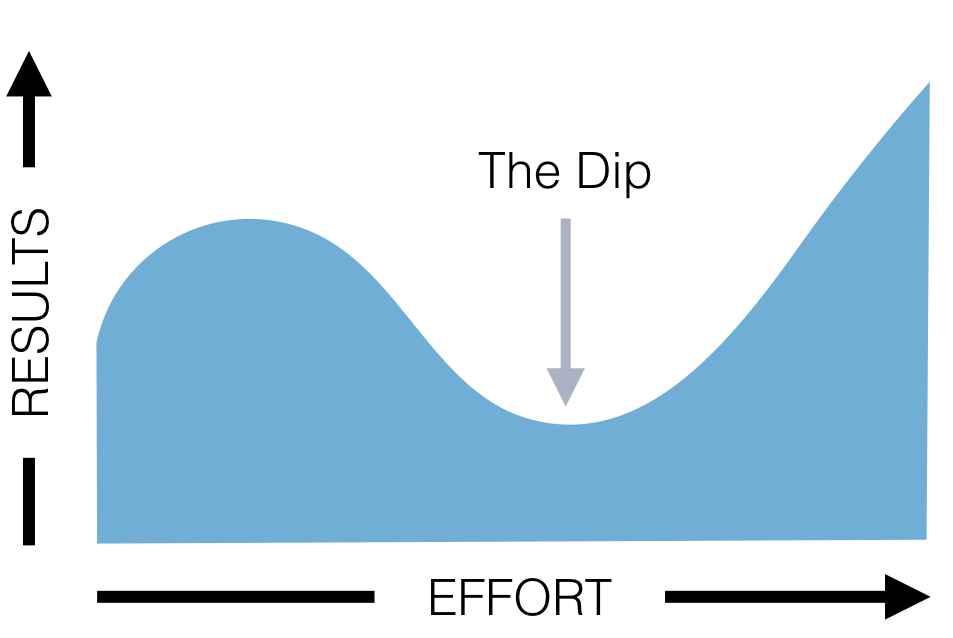
Have you ever felt uncertain whether to start a venture?
Have you ever worked on a venture and wanted to quit?
Have you ever felt that quitting while you’re in too deep with a venture would be a “waste of resources”? (a.k.a. sunk-cost fallacy)
Seth Godin’s book, "The Dip”, really provides insight on how to traverse these questions.
The dip is the time that lies between when you decide to start something, to the point you reach success.
Some dips are quick and easy.
Others are long and tedious.
These are things like:
-
4-year college
-
A Masters program
-
Becoming a chess master
-
Applying and going to Med school
-
Building a startup
The larger the gap is, the fewer people will try to jump over the gap.
Quitting creates scarcity. And scarcity creates value. You can see in the graph above, the results seem to rise up at the beginning, but eventually, peak and spiral downward into a valley over time.
As your “level of experience” goes up, the results seem to stagnant.
After some period of time, though, if you push through the dip, your efforts start to veer back upwards towards success, gaining traction.
This is what people experience when they start to learn snowboarding.
Seth Godin shares in the book that most people who go to a snowy mountain want to learn snowboarding.
Unfortunately though, they don’t realize how difficult learning how to snowboard is.
They seem to gain traction in the beginning, but as time goes on, the level of commitment and work and the results that arrive do not make valid sense.
With that, a majority of people quit after realizing they can’t get to that level of expertise, wasting time.
The people who spend a bit of time going through the dip can become average snowboarders, but the ones who are willing to hold out to the end of the dip end up in the top 0.1% of snowboarders.
If people who wanted to snowboard knew about the dip before they started, they could assess how far they wanted to go, face reality, and either commit to the dip or quit ahead of time.
Ultimately, the idea of the dip is that if you can't make it through the dip, don't start and save your time to work on something else.
But if you can and are willing to start & stick out the dip, you will reap the rewards on the other side by crossing the gap that others won't jump.
The Dip gives you:
-
permission to quit when you find yourself facing the sunk-cost fallacy of a decision
-
wisdom to quit before you start a project you don't plan to complete
-
motivation to push through to the end of the dip when you commit to a project
Questions to ponder: 🤔
-
What venture are you pursuing that you’re not willing to hold out to the end?
-
What venture are you considering that you’re willing to continue no matter the cost?